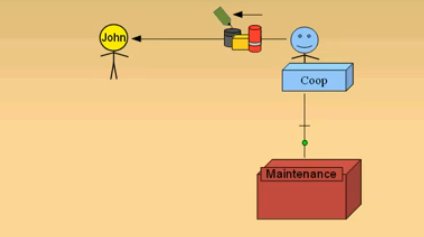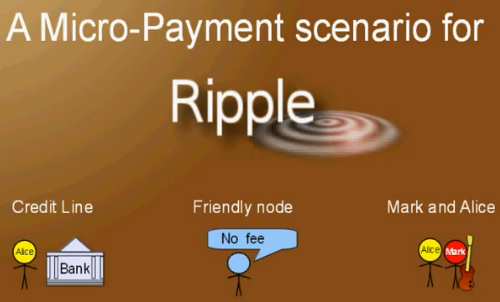UseCasesList
This page is a stub, help improve it or join the discussion here
|
Use Case Type |
Use Case |
Description |
Requirements |
Requirements (online services) |
Deployment |
|
Underbanked |
Face to face exchanges and Ripple payments for people that does not carry electronic means of payment |
(todo: help find such community ) |
Ripple service e.g. ripplepay.com (todo: improve software usability) |
This is seen as take-off application | |
|
Small School community |
Same as "Underbanked" | ||||
|
Local business |
Same as "Underbanked" | ||||
|
Ripple service e.g. ripplepay.com | ||||
|
Micro Donation |
|
( todo: help find such beneficiaries ) |
Ripple service e.g. ripplepay.com |
This is seen as take-off application | |
|
Integrated resource accounting |
Use Ripple to track resources within other applications, such as distributed data transfer, Emule ... |
Ripple service e.g. ripplepay.com |
proposed here |
Face to face commerce
This is seen as the use case that requires less effort to take off.
Wich community?
Many proposals have been done about communities:
- 'Underbanked' That is, people that does not carry electronic means of payment.discussed here
- Find networks of people that have a lot of 'facetime'. Seriously, I don't know how your town is socially structured, but the average North
American metropolitan suburb is a complete social basketcase and the last place you could set up something based on trust. Although I live in a suburb, my real friends are artists that work in warehouse studios and live in coop housing in the bohemian parts of town and -- this is important -- meet 10-15 of their circle of 250+ friends face-to-face every day. Yes, some of them also use Facebook but it's considered to be a gimmick, not a substitute for social interaction.
- Find situations where people already use ways of mutual credit. Such as a baby-sitting/car pooling/dinner cooking co-op etc. Or, in some
pubs, if you're a regular, you can get a free beer and the barman will put a little marker on a beer mat with your name on it as a debt obligation. In some situations suppliers in the supply chain use mutual credit. A fridge wholesaler will deliver fridges to a retailer but only ask for payment three months later, an unofficial way of giving a loan to a retailer whose economic wellbeing is in the interest of the wholesaler.
- Move to a 3rd world slum like Dharavi. In Dharavi, 650,000 people produce an estimated US$ 2000 per person per year, 85% of them have jobs in the slum itself, working in one of its 15,000 unofficial, unlicensed factories, and they are desperate for some form of money to structure their internal economy. At a population density of ~300,000 per square km they can't walk 100 meters without bumping into 1000 of
their closest friends and, with sleeping up to 10 people in a room, they literally are 'close' enough to each other for a scheme based on mutual trust.
How can we reach a critical mass?
- Bootstrap the network by giving things away: Go bake some muffins and just hand them out in the neighborhood. Then set up an account in ripple for each neighbor. Your credit limit with them is $5 and theirs with you is $8 because of the muffin. If 100 people just put up 3-5 items for sale/purchase then you have something going.discussed here
Online Exchanges
Ripple will be a real replacement for traditional payment system only when it will be accepted by a good percentage of the internet population. Reaching such an high critical mass is extremely difficult on a global scale. It is easier to reach a critical mass in a small internet community linked by a common interest. For example people that share an interest for example people that collects something.
How can we reach a critical mass?
Ripplexchange can be seen as a tool to create such internet community.


